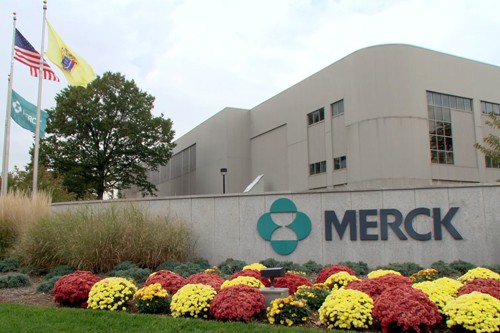
Merck & Co has joined the ranks of big pharma companies making mid-size acquisitions in the oncology arena, buying ArQule for $2.7bn in cash.
The deal – due to close in the first quarter of 2020 – will give Merck ownership of ARQ 531, a BTK inhibitor that has just reported more encouraging data in B-cell cancers at the ASH congress in Orlando.
ARQ 531 is in the same general class as Johnson & Johnson’s Imbruvica (ibrutinib) and AstraZeneca’s Calquence (acalabrutinib), but is a reversible, non-covalent inhibitor that zeroes in on a mutation called BTK-C481S that causes resistance to its rivals.
ArQule has been billed as a takeover candidate for months, and particularly since it reported data at the EHA meeting in June which showed that it was able to achieve a response in four of six patients whose cancer was resistant to Imbruvica and has exhausted all available therapies.
New data at this week’s ASH came from a phase 1 dose-escalation study in 47 patients with B-cell lymphoid malignancies, most of which had been treated before with multiple lines of therapy including chemotherapy, targeted antibody therapies and Imbruvica or Calquence.
The overall response rate with ARQ 531 was an impressive eight out of nine patients (89%) with chronic lymphocytic leukaemia (CLL) and a C481S mutation, and there was also signs of clinical activity in non-Hodgkin’s lymphoma (NHL) and an impressive three out of six responders in an aggressive form of NHL called Richter’s transformation.
Given that Imbruvica is knocking on the door of $6bn in annual sales, ARG 531’s potential even in as a rescue therapy for patients who relapse on treatment with one of the other BTK inhibitors is an attractive proposition. But ArQule also thinks it might be able to move its drug further up the treatment pathway and make it a first-line option.
Analyst Jonathan Chang of SVB Leerink said that the ASH data look “strong” and suggest ArQule is maintaining its lead over rivals such as Eli Lilly’s LOXO-305, which is also in early-stage testing and had phase 1 results on show at ASH in CLL and mantle cell lymphoma, and Sunesis’ vecabrutinib.
The latter also had some new data at ASH from a phase 1b/2 dose-escalation trial, still ongoing, which showed evidence of stable disease in seven patients.
The takeover deal is a remarkable turnaround for ArQule, which was first founded in the early 1990s but has never brought a drug to market despite pushing multiple candidates through clinical trials, with recent fails including c-MET inhibitor tivantinib.
This year has seen the completion of a string of asset-focused deals involving big pharma companies and smaller cancer drug developers, with Merck/ArQule coming on the same day as Sanofi’s $2.5bn play for Synthorx.
Others have included GlaxoSmithKline’s $5.1bn takeover of Tesaro, Pfizer’s $11.4bn acquisition of Array Biopharma, Eli Lilly’s Loxo Oncology deal valued at $8bn and Merck’s $2.2bn deal to buy Peloton.




